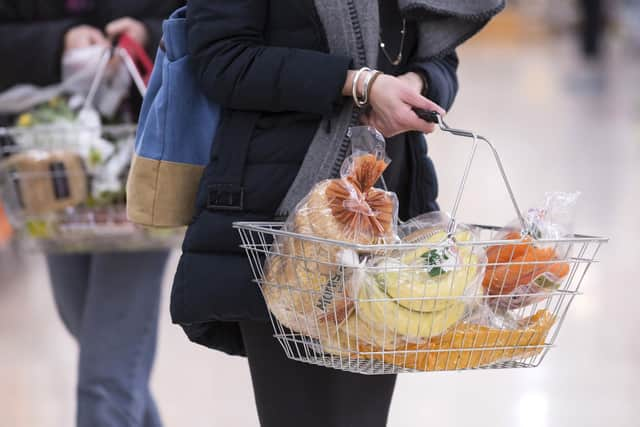Lower-income households in Mid Ulster struggle to afford healthy foods as food prices rise
and live on Freeview channel 276
A new report by safefood on the cost of a healthy food basket has revealed some families in Mid Ulster spend up to £169, almost half (45%) of their take-home income, on food, with families with teenage children paying an extra £40 per week on food than those with younger children.
Inflation, soaring energy costs and the increased price of food over the past few years have been attributed to the pressure placed on low-income households and subsequently a more pronounced nutritional inequality among the Northern Ireland population.
Advertisement
Hide AdAdvertisement
Hide AdRecent data shows that grocery price inflation rose again and now stands at 15%, up from 13.8% in January.


FSA Director for Northern Ireland, Andy Cole said “Tight budgets make it more difficult for households on a low income to eat well, potentially leading to health inequalities. The 2022 Food Basket research adds to an evidence base aiming to shape Northern Ireland’s policies to address food need amongst the most vulnerable in our society.”
Dr Aileen McGloin, Director of Nutrition with safefood said: “Average food prices are now at their highest since we started this series of research in 2014. We’re seeing a consistent pattern of households trying to balance buying an affordable food basket with other rising household expenses.
“With food shopping being the only flexible household spending, many families are being forced to choose cheaper and often nutritionally poor food items to keep food spending within their means and this is a really worrying trend.
Advertisement
Hide AdAdvertisement
Hide Ad“For all families with children, food is the largest household cost, and this has only been exacerbated by the rises we have seen in inflation in the past 12 months. Foods¹ like meat, fruit, vegetables, dairy, bread, and cereals make up two-thirds of food costs for families and these foods have increased in price between 3% and 7% in the last two years.”
The report ‘What is the cost of a healthy food basket in Northern Ireland?’ found that a two-parent household, who rely on benefits, with two children in primary and secondary school, their weekly food shop is £169 or 45% of their income.